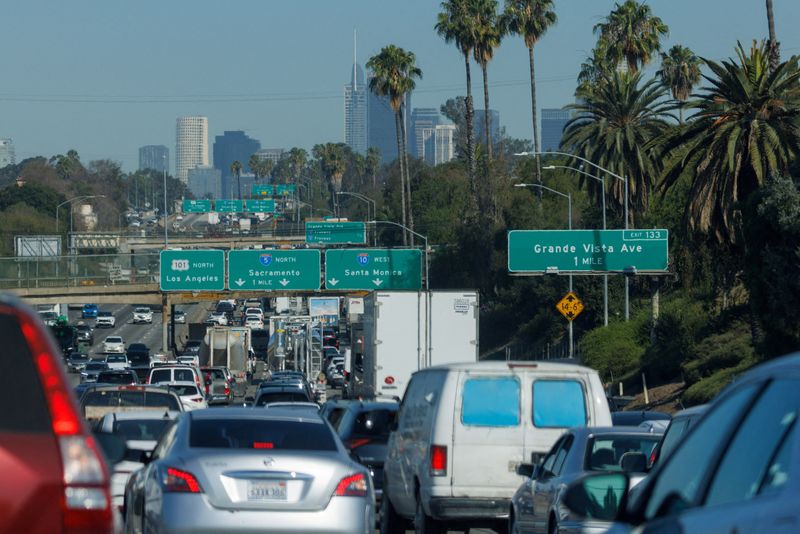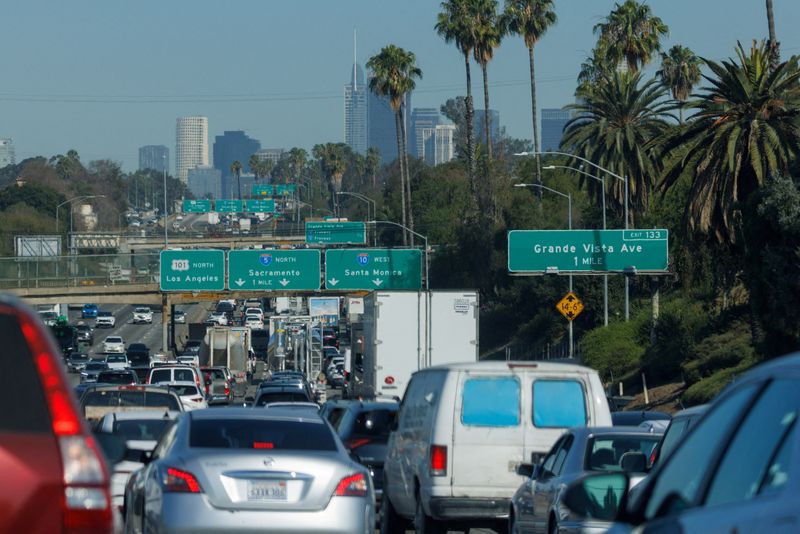
(Reuters) -California regulators voted on Friday to toughen a policy aimed at boosting low-carbon fuels to slash greenhouse gas emissions from the transportation sector and meet state climate change goals, despite criticism it would increase retail fuel prices.
The 14-member California Air Resources Board voted 12 to 2 to approve changes to the state’s influential Low Carbon Fuel Standard (LCFS). The vote followed nearly eight hours of testimony from supporters and opponents of the program, as well as a lengthy debate among board members.
Several members said the changes were essential to preserving Democrat-led California’s climate leadership following Donald Trump’s presidential victory. Trump, a Republican, has pledged to rescind California’s ability to set its own vehicle emission rules, as he did during his first term as U.S. president.
“The world is watching California to see if we will maintain leadership or fracture under internal pressure for perfectionism,” state Senator Henry Stern (AS:PBHP), a non-voting board member, said in a statement read at the meeting by fellow board member Hector De La Torre.
“California has a long history of enacting visionary and affordable climate policies that are durable enough to endure major shifts in national politics like we just witnessed.”
The amendments to the LCFS, which has been in place since 2011, would require a deeper reduction in the carbon intensity of transportation fuels by 2030 in order for fuel producers to earn the program’s tradable credits.
Transportation accounts for about 50% of the state’s greenhouse gas emissions.
While biofuel producers and some state climate advocates backed the changes, critics including oil companies and consumer advocates said the change would increase gasoline costs for Californians. Environmental groups also argued that the policy would extend the production of oil and gas and prioritize fuels made from food crops and large dairy operations instead of encouraging a transition to electric vehicles.
The LCFS requires fuel makers to buy tradable credits if their products generate more carbon emissions than a baseline set by regulators at the air resources board. Refiners that produce low-carbon fuels and gases can generate the credits to sell.
The policy set off a boom in renewable diesel and biogas production in recent years that has sent credit prices down to around $70 from above $200 in 2020. The policy revisions are meant to prop up credit prices and encourage more low-carbon fuel production.
As a result of the board’s vote, the LCFS will require a 30% reduction in the carbon intensity of transportation fuels by 2030, up from 20%. The revisions will add a 90% carbon intensity reduction goal by 2045.
Developers of projects that produce renewable fuels from organic waste supported the measures.
Opponents voiced concern, however, about the potential for higher gasoline prices.

In an analysis released last year, the board said the changes could increase the price of gasoline by 37 cents a gallon, on average, from 2024 through 2030. But the board has since said models cannot accurately predict future fuel prices.
The board’s internal environmental justice advisory committee had urged it to reject the revisions, citing an exemption for jet fuel producers and large subsidies for dairy methane projects, among other concerns.
This post is originally published on INVESTING.


